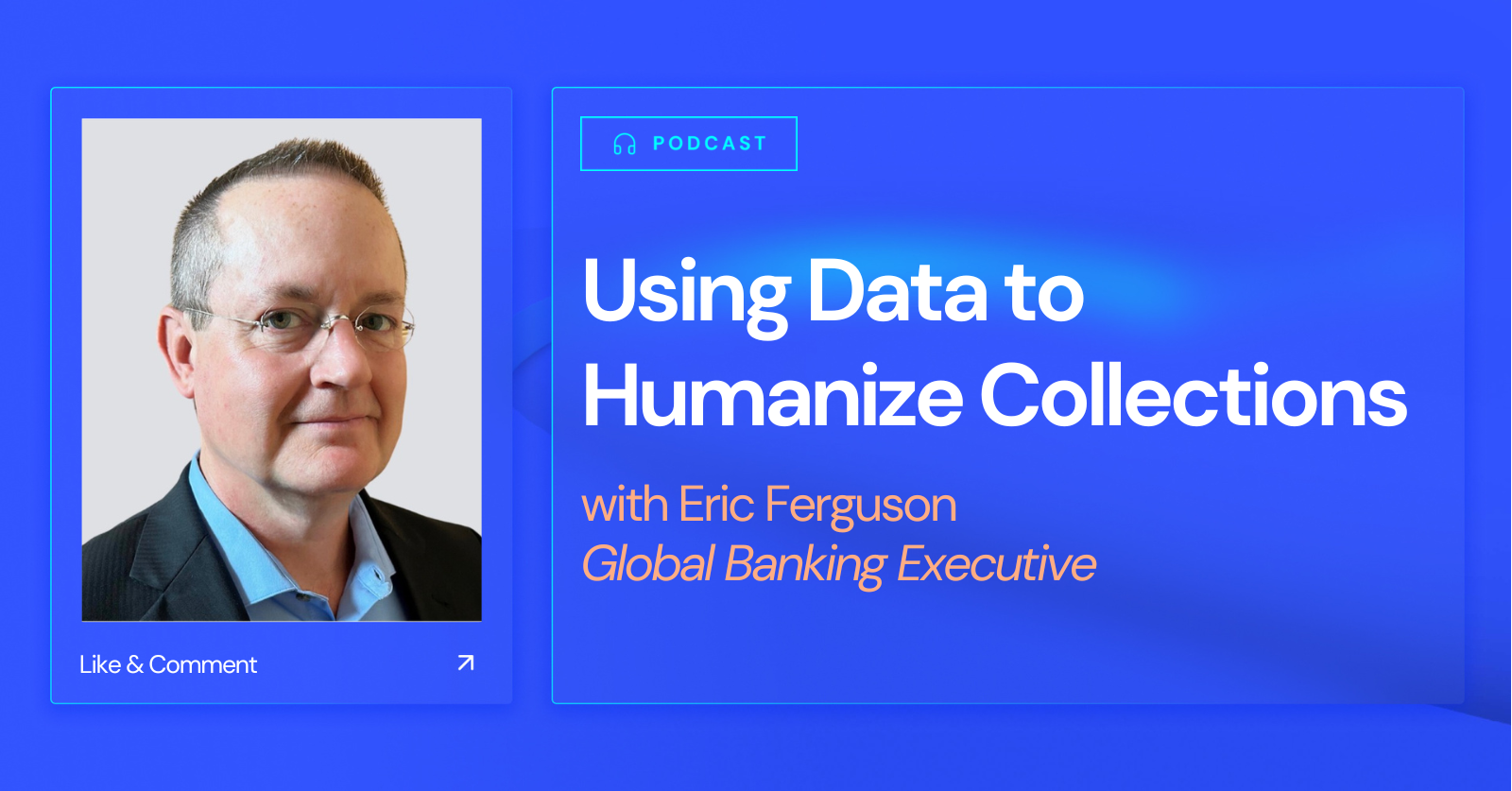This week on Collecting Thoughts, we welcome a collections industry expert with unique experience and insights into collections. Eric Ferguson has over three decades of experience in collections, specializing in technology utilization within the industry. We sat down with Eric to learn more about his journey within collections and where he sees technology taking the industry in the future.
Eric Ferguson's Story
Over the last 30+ years, Eric Ferguson has made a name for himself throughout the collections industry as a collector and in management. Before he was a well-known name, he was an entry-level collector himself. He started on the ground floor at a collections company, where he learned everything there was to know about collections at the time and what made someone a "good" collector.
Back in the day, collections were all about bombarding customers with phone calls and even lacked a sense of humanization that is now a driving force in collections. Eric states that while he was on the phone, he was able to act as a collector but also empathize with the person on the other end of the phone, giving him another perspective.
After almost ten years, Eric shifted to working in analytics and marketing at Bank of America. He would go on to assist their collections department thanks to his extensive experience and innovative thinking.
Over the course of his career, he strived to find ways to make the collections process more manageable for the customer, and that relied heavily on technology. Eric was part of the team that created the first-ever self-service collections platform, making him a pioneer within the industry.
How a Data-Drive Strategy Can Transform a Business's Collection Operations
Combining his skill sets, collections, and analytics, Eric tells us how data-driven strategies can completely transform a business's collection operations. Collections is a customer-focused industry and uses data to help the overall process run more smoothly, which, in turn, will provide a better customer experience.
Today, many industry professionals use technology to track customer information and other data, such as customer contact preferences. Having this information readily available helps collectors with their contact attempts. It allows them to individualize each customer experience, making it easier to determine if they are low, medium, or high risk.
Using a data-driven collections strategy, Eric reduced costs and increased customer satisfaction while he was at Bank of America. He goes on to express the importance of seeing the customer as a whole. When you don't, you'll fail at collections.
Willingness to Pay and How You Treat People
Diving deeper into a more customer-centered approach to collections, Eric talks about how important how we treat other people is. It's no secret that most people don't enjoy speaking to someone from collections, but building rapport and treating people with kindness can go a long way.
Providing exceptional service to your customers is critical to ensuring their satisfaction. The better you treat them, the more willing they are to cooperate and settle their debts.
Utilizing customer data is a great way to keep track of and build rapport with customers. Taking the time to create relationships over time will lead collectors to be more successful rather than calling the highest risk customer repeatedly, demanding they pay.
How Technology and Collections Has Changed According to Eric
Technology has changed the way our entire world works, and the collections industry is no different. Eric shared with us how much technology has shaped the collection industry since he got his start in it over 30 years ago.
He talks about how there are dozens of new tools out there that can make keeping track of customers and their information more straightforward and more accessible. It can be how they like to be contacted, when, and any information that will make building relationships and getting payment easier. These technologies lead to more positive outcomes for everyone.
Technology has also allowed collection companies to set up online portals, making it easier for customers to handle their payments. It's a simple way to manage simple collection issues without the customer having to speak with a collector unless they want to. A hurdle many collectors faced was only operating during business hours; only some were at home or able to take calls since they were also working.
Online portals allow customers to reach someone or make a payment 24/7, making them far happier than if they didn't have the option.
Using AI and machine learning to help with slightly more complicated collection problems without having to be on the phone.
Parting Words From Eric Ferguson
Before finishing our conversation, Eric shared with us the role artificial intelligence (AI) and machine learning (ML) might play in the collections industry as this technology evolves.
He believes that more collections companies will utilize AI or ML bots on their online portals to start solving more complicated customer problems instead of simple ones. Regardless of what happens, Eric says that AI and ML technology will become significant players within the collections industry, hoping to make customers happier.





-Jan-20-2026-02-48-49-6447-PM.png?width=352&name=operationalize%20AI%20(15)-Jan-20-2026-02-48-49-6447-PM.png)

-Jan-28-2026-02-16-48-0429-PM.png?width=352&name=operationalize%20AI%20(14)-Jan-28-2026-02-16-48-0429-PM.png)